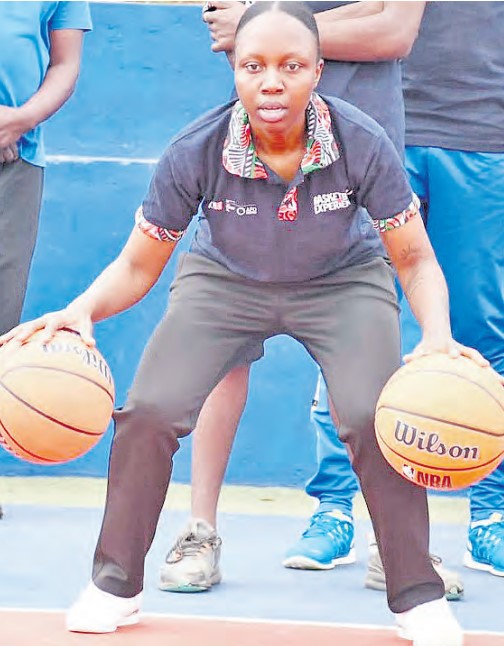

Drugs, crime, sodomy, rape, teen pregnancy and school dropout; children in informal settlements endure a lot, but basketball is turning tides in Kayole.
Natasha Atieno, a professional basketball player and coach, is helping children in the informal settlement.
She has turned into their coach, counsellor and therapist, listening to the ordeals young people go through under the noses of their parents.
If you want to know the things your children go through, ask their teacher, friends, and as Atieno says, their basketball coach.
She developed a passion for basketball in high school, and it has not just turned into a career but also a means of serving children in informal settlements.
From rape of teenage girls by their own relatives and friends, to teenage pregnancies and children sleeping on empty stomach, Atieno says basketball plunged her into a life she did not expect, but one that is fulfilling.
She recounts a case of an 11-yearold girl, whose mother works as a sex worker.
She says the mother allowed one of her clients to defile the girl.
“This girl was among those who came to the basketball court for training and one day, she gathered courage and told me she wanted to speak to me after the game,” she told the Star during the interview.
Atieno took note of the request and after the training, she called the girl and struck a conversation.
“I don’t want to go back home to be with mum,” the girl told her.
“She told me that her mother allowed her clients to defiled her. I was gutted.”
“It fell upon me to help the girl because she trusted me as her coach. Together with the team management, we put her in a safe house and supported her schooling. The mother does not know but we always tell her the daughter went to boarding school.”
The 25-year-old also remembers how a boy would be reluctant to return home after practice and after inquiring, she discovered he feared being sodomised by his father.
The game has helped keep children and the youth away from drugs, crime, early pregnancy or dropping out of school, Atieno says.
“In Kayole, you get a child who has not taken breakfast or did not have supper. It is your job to ensure they get something to eat because you can’t train hungry children.”
She says there are limited opportunities in the slums for the young people and high poverty levels make them vulnerable.
“We can have 20 people at the basketball court but after a week, they reduce to 15. If you ask around, you are told so and so became pregnant and she disappeared. In some cases, it is defilement and they won’t say,” Atieno says.
“If you ask her who the father is, she won’t tell you. Girls as young as 13 and 14 years get pregnant.”
“They run away from the court but some come back to the game after they realise their mistakes and want to make amends.”















